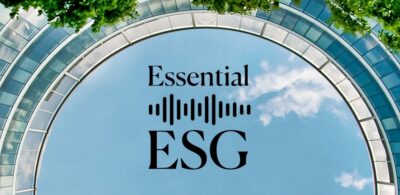NSW Modern Slavery Act and Commonwealth Slavery Bill: How will organisations be affected by the reporting requirements?
04 July 2018
This article was updated on 5 February 2018 to reflect the commencement of Commonwealth legislation.
An estimated 40.3 million people worldwide are victims of slavery with 15,000 of these workers believed to be residing in Australia.[1] Minority groups in particular, such as migrants, are at greater risk of exploitation.[2] So, how will the Modern Slavery Acts passed by the Commonwealth and NSW seek to address these issues and what will this require of organisations?
In response to this critical situation, the Modern Slavery Act 2018 (NSW Act) was passed through NSW Parliament on 21 June 2018. The NSW Act defines ‘modern slavery’ as committing, attempting to commit or inciting a range of offences in the Crimes Act 1900 (Cth), Human Tissue Act 1983 (NSW) and Criminal Code Act 1995 (Cth), including slavery, servitude, forced labour, human trafficking, debt bondage and sexual servitude.
Shortly after, on 28 June 2018, the Commonwealth Government introduced a bill to be applied at a national level. The Commonwealth Modern Slavery Act was passed on 29 November 2018 and commenced on 10 December 2018.
Both regimes seek to ensure that companies have a publicly-available modern slavery statement so that customers and the public can scrutinize enabling consumers and contractual counter-parties to assess, make decisions and participate in a debate about ethical supply chains.
NSW Modern Slavery Act
The NSW Modern Slavery Act 2018 was passed and assented to in June 2018, but as at 5 February, has not commenced. The NSW Act requires commercial organisations with an annual turnover of $50 million or more to produce a Modern Slavery Statement on the incidence of modern slavery in their supply chains.
Reporting requirements under the NSW Act will apply to ‘commercial organisations’ (companies, partnerships and associations) that:
- have employees in NSW;
- supply goods and services for profit or gain;
- have a total turnover in a financial year of not less than $50 million; and
- are not a NSW government agency.
Each financial year, commercial organisations will need to prepare and publish a modern slavery statement containing the steps taken to ensure that their goods and services are not a product of supply chains in which modern slavery is taking place.
Regulations will prescribe the content to be included in modern slavery statements, and the method of publication. Organisations should be prepared to include information on the following:
- structure, business and supply chains;
- due diligence processes in relation to modern slavery in the organisation’s business and its supply chains;
- the parts of the organisation’s business and supply chains where there is a risk of modern slavery taking place, and the steps taken to assess and manage that risk; and
- training available to employees regarding modern slavery.
A penalty of up to $1.1 million applies for:
- failing to prepare a modern slavery statement;
- failing to publish a modern slavery statement; or
- providing false or misleading information in connection with a modern slavery statement.
Any disclosure concerning the incidence, or possible incidence, of modern slavery in a commercial organisation’s supply chains will be recorded in a public register maintained by the Anti-slavery Commissioner. The register will also record whether the organisation has taken steps to address those modern slavery concerns. The NSW Act mandates that government agencies must take reasonable steps to ensure that goods and services procured by and for the agency are not the product of modern slavery. Meeting this obligation would likely require government agencies to review modern slavery disclosures of potential suppliers on the public register.
The NSW Act states that the reporting provisions do not apply if another regime is in place.
Commonwealth Modern Slavery Act
The Commonwealth Modern Slavery Act 2018 received assent and commenced on 10 December 2018 and the operating provisions commenced on proclamation on 1 January 2019.
The Commonwealth Act applies to organisations with a consolidated revenue over $100 million per financial year (compared with $50 million for the NSW Act).
Under the Commonwealth Act, certain entities must prepare a ‘modern slavery statement’ each financial year. Entities required to comply are:
- Companies that are Australian residents within the meaning of the Income Tax Assessment Act 1936 (Cth);
- trusts, where the trust entity is a resident trust estate;
- corporate limited partnerships that are Australian residents;
- other partnerships or entities that are either:
- formed or incorporated within Australia; or
- the central management or control of the entity is in Australia; and
- entities that carry on business in Australia at any time in the reporting period within the meaning of the section 21 of the Corporations Act with a total revenue of more than $100 million per financial year.
Entities that are not listed above may volunteer to comply with the reporting requirements.
The Commonwealth must comply with the Act. So must corporate Commonwealth entities and companies with at least $100 million revenue for the reporting period.
The Minister for Home Affairs (Minister) will maintain an online, public register of these statements. Modern slavery statements must be provided to the Minister within six months after the end of each financial year. For companies that run to the Australian financial year, the first modern slavery statements will be required in respect of the 2019/2020 financial year and must be submitted by 31 December 2020.
For organisations that have given notice of an alternative accounting period to the Commissioner of Taxation in accordance with the Income Tax Assessment Act 1936 (Cth), the first reporting period will be the first accounting period that commences after proclamation or 10 June 2019, and the first statement must be furnished within 6 months of the end of that accounting period.
The statement must be approved by the principal governing body of the entity (i.e. a company’s board of directors) and signed by a responsible member of the entity.
There are further requirements prescribed by the Commonwealth Act, including that the modern slavery statement must identify the reporting entity and describe:
- its structure, operations and supply chains;
- the risks of modern slavery practices in its operations and supply chains, and those of any entities that the reporting entity owns or controls (control of the entity is determined within the meaning of the accounting standards);
- the actions taken by the reporting entity and any entity that the reporting entity owns or controls, to assess and address those risks, including due diligence and remediation processes. This may include the development of policies and processes to address modern slavery risks, and providing training for staff about modern slavery; and
- the effectiveness of those actions taken.
The modern slavery statement must additionally describe the consultation process with other entities that the reporting entity owns or controls and include any other relevant information.
A ‘joint modern slavery statement’ that reports on a number of entities may be prepared. Approval for the joint modern slavery statement must be given by the principal governing body of either:
- each reporting entity covered by the statement;
- an entity (higher entity) which is in a position to influence or control each reporting entity covered by the statement, whether or not the higher entity is itself covered by the statement; or
- if it is not practicable to comply with (a) or (b), at least one reporting entity covered by the statement.
Differences between NSW Act and Commonwealth Bill
Unlike the NSW Act, the Commonwealth Act does not contain any penalties for failing to prepare or publish a modern slavery statement or for providing false and misleading information. Instead, the Minister may request further information from any companies that do not publish a Modern Slavery Statement and ultimately publish on the register the fact that the entity has failed to comply with the Minister’s requests to publish a Modern Slavery Statement. The Commonwealth Act additionally provides that the regulations must not enforce any offence or civil penalty. A review of the Act will be undertaken three years after the Act commences and may at that time review the rules regarding offences and penalties.
This creates the situation where entities covered by the NSW Act, but not the Commonwealth Act (i.e. those with a NSW presence and a turnover between $50m and $100m) are subject to penalties, but entities with a turnover of $100m or more, are not.
Impact on procurement and reporting of government agencies
NSW Agencies
Government agencies are exempt from the NSW reporting requirements. However, the Act has a number of provisions directed to the incidence of modern slavery in the procurement of goods and services by NSW government agencies.
A ‘Government agency’ is:
- a government sector agency (as defined in the Government Sector Employment Act 2013);
- a NSW Government agency;
- a State owned corporation;
- a company incorporated under the Corporations Act 2001 of which one or more shareholders are a Minister of the Crown;
- councils, under the Local Government Act 1993;
- any other public or local authority constituted by or under an Act or that exercises public functions; and
- any public or local authority constituted by an Act of another jurisdiction that exercises public functions.[3]
The NSW Act inserts a new provision into the Public Works and Procurement Act 1912, which mandates that government agencies must take reasonable steps to ensure that the goods and services they procure are not the product of modern slavery. [4] Any government agency that fails to comply with the NSW Procurement Board’s directions concerning the procurement of goods and services that are the product of modern slavery will be identified in the Anti-slavery Commissioner’s public register.
The Act also inserts a new provision into the Public Finance and Audit Act 1983, enabling the Auditor-General to conduct an audit of a government agency to assess whether an agency is ensuring that the goods and services it procures are not a product of modern slavery. [5]
The Act amends the Annual Reports (Departments) Regulation 2015and the Annual Reports (Statutory Bodies) Regulation 2015 to require government departments and statuary bodies to include in their annual reports:
- a statement of the action taken in relation to any significant issue raised by the Commissioner during the financial year concerning the operations of the agency; and
- a statement on the action taken to ensure goods procured were not the product of modern slavery.[6]
The role of the NSW Anti-Slavery Commissioner in relation to government agencies
Government agencies must work in co-operation with the Commissioner in the exercise of their respective functions.[7]
The Commissioner must regularly consult with the Auditor-General and the Board to monitor the effectiveness of due diligence procedures in place to ensure that goods and services procured by government agencies are not the product of modern slavery.[8]
Finally, the Commissioner may develop publically available codes of practice that guide government agencies in identifying, monitoring and remediating modern slavery in their supply chain.[9]
Commonwealth Agencies
The Commonwealth Act mandates for the Minister to prepare a modern slavery statement that complies with the Act’s reporting requirements referred to above, for all non-corporate Commonwealth entities.
Implications for commercial organisations
Commercial organisations subject to the Commonwealth Act should start preparing now to ensure they comply with the new requirements. The following steps should be considered:
- Allocating reporting responsibilities to relevant departments or people. This may include the corporate social responsibility, operations management, procurement/supply chain management or human resources teams;
- mapping organisational structure, operations and supply chains;
- identifying high level risks in the supply chain;
- developing policies and practices to address modern slavery and ensure policy cohesion;
- consult with and notify supply chain members of company expectations and their reporting requirements;
- assess and manage identified risks including creating a remediation;
- undertake due diligence that investigates and monitors modern slavery within the organisation and its supply chains;
- training employees and members of supply chains on modern slavery;
- considering whether to use internal or external human rights experts to advise on, conduct or evaluate the reporting process; and
- allocating resources to fund the above steps.
Looking forward
Both the NSW Commonwealth Acts operate on the basis that businesses should assess, identify and where necessary address instances of modern slavery in their supply chains. By publishing modern slavery statements businesses are able to demonstrate their responsible practices and efforts to eliminate modern slavery in their supply chains. In turn the market, NGOs, and others are able to make more informed decisions when purchasing goods and services. The NSW Modern Slavery Act will bring most large NSW (and indeed Australian) businesses into line with global practice in supply chain reporting.
It seems likely modern slavery statements will be carefully scrutinised in government procurement, as agencies seek to meet the internal standards governments have set. Similarly, commercial procurement arrangements will now increasingly include ethical supply as one of the key elements for assessment.
More broadly, there will be a greater level of public awareness around this issue and companies’ responses to it. Businesses can expect to see league tables comparing their response to their competitors, and activists using this information to challenge commercial organisations to ensure they are not part of the global modern slavery problem.
[1] 2016 Global Slavery Index, pp 4 and 29, accessed at https://www.globalslaveryindex.org/download/.
[2] Ibid, 54.
[3] Modern Slavery Act 2018 (NSW) s 5(1) (definition of ‘government agency’).
[4] Modern Slavery Act 2018 (NSW) sch 5 cl 5.6[3].
[5] Modern Slavery Act 2018 (NSW) sch 5 cl 5.5.
[6] Modern Slavery Act 2018 (NSW) sch 5 cll 5.1–5.2.
[7] Modern Slavery Act 2018 (NSW) s 14.
[8] Modern Slavery Act 2018 (NSW) s 25.
[9] Modern Slavery Act 2018 (NSW) s 27.
[10] International Labour Organisation, ILO Indicators of Forced Labour, 2013, accessed at http://www.ilo.org/wcmsp5/groups/public/---asia/---ro-bangkok/---ilo-yangon/documents/publication/wcms_227848.pdf.
Authors

Partner

Partner
Tags
This publication is introductory in nature. Its content is current at the date of publication. It does not constitute legal advice and should not be relied upon as such. You should always obtain legal advice based on your specific circumstances before taking any action relating to matters covered by this publication. Some information may have been obtained from external sources, and we cannot guarantee the accuracy or currency of any such information.



